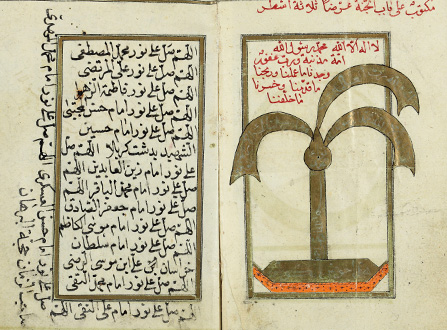Autobiographical interviews of Jews born in German speaking countries ("Yekkes") - 50/60 years after their immigration to Israel
لتكبير النص لتصغير النص- تسجيل
Original name: Hella Schaechter. She was born on 09/17/1926 in Tarnapol and grew up in Vienna. In summer 1938 she was expelled from her school and sent to a Jewish school. She emigrated to Palestine with her parents in 1939. First she finished an agricultural school, later studies of English language and literature, psychology and Hebrew. She worked 40 years as teacher of English and Hebrew at schools and at the Hebrew University of Jerusalem. She was retired at the time of the interview. ; Ora Lang's childhood in Vienna: The family lived in district III in Vienna (Erdberg), where hardly any Jews lived; Ora was the only Jew in her class. She always had a feeling of being different. She had only a few friends (one of them she still meets regularly in Israel). Her parents were not very religious. For herself, religion was not more than a social event. They had friendly fellow residents in a big house with 30 apartments. A communist woman sometimes took care of her when her family was not at home. Ora was “in love” with a red haired Christian boy in her building, she was invited to his family at Christmas and he to her for Pessach. Her father and her uncle had a manufacture of blankets. After Anschluss, her teachers remained friendly, but the neighbors' friendliness cooled down. Ora was expelled from school and sent to a Jewish school after the summer holidays in 1938. In September, the family with a new baby brother was expelled from their beautiful apartment and sent to district II (Leopoldstadt), where they had to share a four room flat. with three other families. Nevertheless, Ora felt fine among the many children there. The families discussed emigration a lot. Soon after the Aryanization, Ora's father's business was confiscated. ; Aliyah: The family chose to emigrate to Palestine because her father was Zionist and his two sisters were already living there. They emigrated in September 1939 by ship from Trieste. Before the emigration, her father had to hide from the SA because he had been denaturalized as a Polish citizen. Ora arranged the documents for the emigration. She was a member of a Jewish youth association. These facts gave her self-confidence, and suddenly she felt like an adult because of her important tasks. She remembers the adults being happy aboard the boat to Palestine. Ora's father had urged their relatives in Poland (among them his parents and his parents in law) to emigrate, but maybe not insistently enough. More than 30 family members were killed in the Holocaust; only one uncle survived and came to Palestine later. ; The life in Palestine/Israel: Ora Lang's first impressions of Palestine were like a dream. Nevertheless, her father did not find work. Luckily, the aunts were able to buy a small house for the family in Holon. Ora started school in a class appropriate to her age, eventhough she did not know Hebrew at all. Her uncle gave her private lessons. First she felt like a stranger because of the different clothes, hair styles and behavior of the children, but she acclimatized during the first year. She again joined Hashomer Haza'ir. She was not accepted to the Hagana before she knew enough Hebrew. About her studies of English language and literature and psychology: she wanted to become a psychologist, but she started to teach Hebrew to immigrants during her studies, and this job encouraged her decision to study Hebrew. She kept in touch with one friend from Vienna who had lost her parents in Theresienstadt and who was almost “adopted” by the Schaechters. After the War, Ora Lang has only slowly heard about the National-Socialist atrocities although at first she did not believe what she heard. Her family could not bring any money from Austria. Ora's mother had wanted to emigrate to the USA and hated Israel in the first years. First, German was spoken in the family, but they used Hebrew when the younger son grew older. Ora's brother grew up in Israel and shows the typical behavior of a Sabra. At the time of the Interview, he was the Israeli ambassador for UNESCO in Paris. - Ora met her husband at the university. He had immigrated with his parents in 1920, aged 5 years old, from Moscow. ; Ora's relationship to Austria: She visited Vienna once after the War. She considers many statements she heard during this stay as antisemitic. She did not dare to visit their former apartment. (Episode: In an Austrian wine tavern, they told a man that they were from Jerusalem. The man became pale and ran away.) Ora Lang has one friend in Jerusalem with whom she speaks German, with all the other German immigrants it seems to her more natural to speak Hebrew. She does not feel Austrian anymore. She is glad to have now the opportunity to get in touch with young Austrians because she wants to convince herself that they have dissociated from National Socialism. She had rather given up thinking about the past until she was asked to participate in Betten's project by her friend Miryam Du-nour, Betten's co-author. She felt touched by the book “Wir sind die Letzten. Fragt uns aus” (free translation: “We are the last ones. Ask us”, one of the publications within the scope of this project), because in her family they almost never talked about the past. It was the first German book she has read for a long time. Her daughters do not know a lot about her past, but her granddaughter now starts to ask questions. Her daughters do not know German. (Criticism of the thesis that Austria is a victim of National Socialism). Ora Lang has only few contacts to other relatives who emigrated. Ora Lang's attitude towards the German language and her career as language teacher: She did not speak the Viennese dialect during her childhood. She has problems understanding some TV programs and the language of journalists, because as a child, she was not yet familiar with intellectual and scientific language. She has taught Hebrew for 20 years: She started in a school for immigrants, later she taught Hebrew for newcomers at the Hebrew University. Since her retirement, she paints. Her husband studied law and worked in the Hebrew University's administration department.
| العنوان |
Autobiographical interviews of Jews born in German speaking countries ("Yekkes") - 50/60 years after their immigration to Israel. |
|---|---|
| عنوان بديل |
יהודים ילידי ארצות דוברות גרמנית - 50 שנה לאחר גירושם ועלייתם לארץ |
| مساهم |
Schaechter, Hella Schieferstein, Birgit OHD (interviewer) Syverstuen, Hanne OHD (interviewer) לאנג, אורה OHD (מרואיין) Schaechter, Hella OHD (interviewee) שכטר, הלה OHD (מרואיין) המדור לתיעוד בעל פה של מכון המחקר ליהדות זמננו ע"ש אברהם הרמן באוניברסיטה העברית בירושלים (בעלים נוכחיים) |
| تاريخ الإصدار |
1998 |
| ملاحظات |
Complete audio and transcript Includes short biography, questionnaire and topics of the interview. המדור לתיעוד בעל פה של מכון המחקר ליהדות זמננו ע"ש אברהם הרמן באוניברסיטה העברית בירושלים (234)153 |
| رقم الوعاء |
1. December 1998. |
| الشكل |
22 p. Playing time: 01:04:18 |
| اللغة |
الألمانية |
| الإعتمادات |
המדור לתיעוד בעל פה של מכון המחקר ליהדות זמננו ע"ש אברהם הרמן באוניברסיטה העברית בירושלים |
| رقم النظام |
990044255580205171 |
عند كل استخدام، يجب تحديد المادة في النموذج التالي:
המדור לתיעוד בעל פה של מכון המחקר ליהדות זמננו ע"ש אברהם הרמן באוניברסיטה העברית בירושלים
תנאי השימוש:
استخدام لأغراض البحث، الدراسة والتدريس
يُسمح بنسخ المادة واستخدامها لأغراض الدراسة الذاتية، التدريس والبحث فقط.
يُسمح بنسخ المادة واستخدامها أيضًا لأغراض التدريس والبحث التجارية.
يجب نَسب المادة للمؤلّف/ين وذكره/م عند كل استخدام للمادة.
يُحظر المسّ بكرامة أو اسم المؤلّف من خلال تشويه المصنّف أو تغييره.
لا حاجة للتوجّه إلى المكتبة الوطنية للحصول على إذن بالاستخدام لأغراض الدراسة الذاتية، التدريس والبحث.
الاستخدام غير المخصّص للدراسة الذاتية، التدريس والبحث مشروط بالحصول على إذن من مالك حقوق التأليف والنشر في المادة و/ أو مالك المجموعة. لا يلزم الحصول على موافقة إضافية من المكتبة الوطنية. بالإمكان التوجّه بطلب إلى المكتبة الوطنية للحصول على تفاصيل التواصل بمالك حقوق التأليف والنشر أو مالك المجموعة.
معلومات إضافية:
هذه المادة تسري عليها حقوق التأليف والنشر و/ أو شروط اتفاقية.
تم تحديد شروط الاستخدام في اتفاقية موقّعة من قبل المكتبة الوطنية.
إذا كنت تعتقد/ين أنّه قد وقع خطأ في المعطيات الواردة أعلاهُ، أو أنّك تعتقد/ين أنّ هناك انتهاكًا لحقوق التأليف والنشر بشأن هذه المادة، فيرجى التوجُّه إلينا من خلال الاستمارة التالية
MARC RECORDS
وسوم
- ha-Shomer ha-tsaʻir
- Unesco
- National socialism -- Austria
- Antisemitism -- Austria
- Jews, German -- Israel
- German language
- Zionism -- Austria
- Education -- Austria
- Education -- Israel
- Jews -- Identity
- Youth movements -- Austria
- Israel -- Aliyah
- Vienna (Austria)
- Trieste (Italy)
- Holon (Israel)
- Moscow (Russia)
المواد ذات الصلة
أتعرفون المزيد عن هذا العنصر؟ وجدتم خطأ ما؟

 سجل الدخول باستخدام غوغل
سجل الدخول باستخدام غوغل
 تسجيل الدخول باستخدام فاسيبوك
تسجيل الدخول باستخدام فاسيبوك




